women who work: kali, of the nife en l'air
This is regrettably, the last I have in this series for now - I find that much as I miss writing, I lack the discipline to spend time doing in my free time, but I hope this malaise is a passing phase.
In any case, Kali, of The Nife en l'Air has admirably filled the good writing gap on this blog. Notably, with this quote, which I think sort of sums up what I've been thinking about this whole workwear thing:
"In short, once you understand your office’s official and unspoken rules, find a way to adapt them to your own style, rather than imitate a uniform that isn’t you, which will ultimately have a negative impact on your behaviour, and external image."
Couldn't have said it better - like many things in life, style takes patience to hone. Mistakes happen. And more often than not, you'll come out the other side better dressed.
1) Share one, two or three pictures of some typical work outfits that you wear for various work-related occasions and 2) Describe the elements of the outfit in your own words
As a foreword, my personal style is overall pulled together and I am lucky to work in a rather relaxed environment, so I don’t own specific items just for work. I usually combine the most elegant pieces together on weekdays, whereas I mix them with more casual items on weekends.
There are some rules of course, as in any social situation, and it is all the more important to understand them in the work environment because this can have a real impact on how people perceive you professionally. However, these rules are not always the same from one industry to another, depending on the company, and even depending on the service you work for. Also, there are some official rules, and some implicit ones, which are the most difficult to figure out. For example in my company, which is creative, innovative and young, being too dressed up is actually somewhat of a faux-pas.
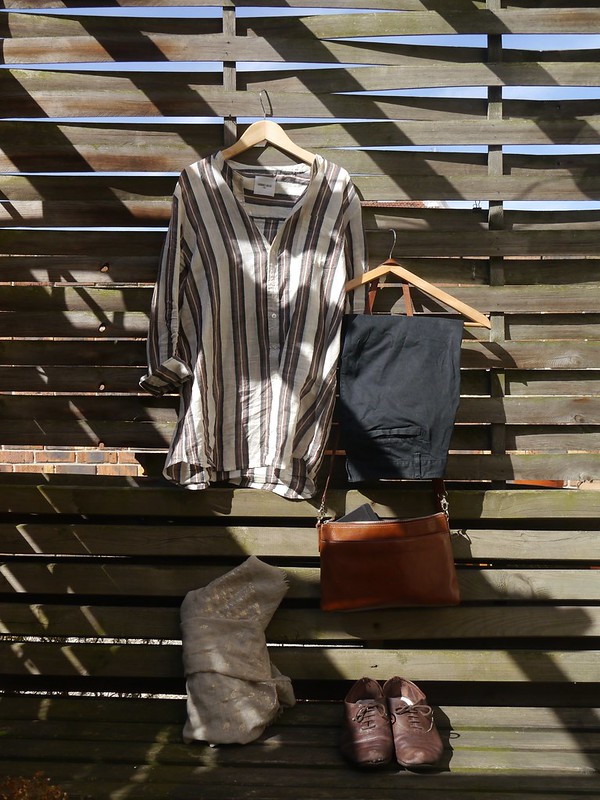
This first outfit (above) is an example of what I would wear on any weekday during the transitional season. Simple black khakis with a pair of oxfords, a shirt to dress it up, a simple and practical bag, and a neutral scarf on windy days. This could also be a weekend outfit, as is or by swapping the shoes with Converse for example.
Speaking of shoes, one of the first lessons I learned at work is to find what suits me best, rather than following some arbitrary list of what women should wear at work. As I wrote above, there are some rules to the work environment, but there are many ways to combine outfits that respect these rules, while remaining true to your own style and identity.
When I started working as an intern in an open space, in my early 20s, I was a bit impressed by all this. It was my first taste of an adult work environment, the social class was higher than mine, I was one of the youngest around, and I wanted to be taken seriously. As a result, I dressed the way I imagined a professional woman was supposed to: tailored pants or skirts, proper cotton shirts and high heels. Only that wasn’t me. Now that I remember this period, I probably looked awkward in poorly tailored shirts and uncomfortable high heels I couldn’t walk in. Even though I wanted to be taken seriously, the result was probably the opposite: I appeared as a newbie who didn’t quite know how to approach the work environment. Which is fine when you are an intern in your early 20s, not so much when you evolve and aspire to get more responsibilities.
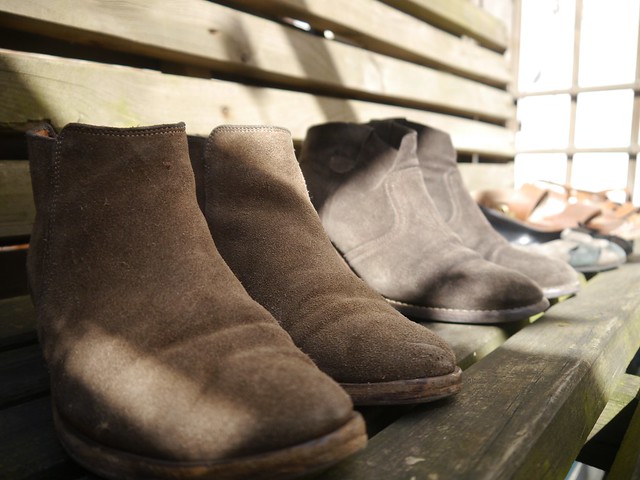
With time, as I grew in confidence and refocused on my personal style, I found that a pair low boots or flats - oxfords, ballerinas or loafers – could be as elegant as a pair of high heels. I also found that I would feel much more at ease, therefore confident, in that type of shoes. As a result, my whole attitude was more poised and I was taken more seriously.
In short, once you understand your office’s official and unspoken rules, find a way to adapt them to your own style, rather than imitate a uniform that isn’t you, which will ultimately have a negative impact on your behaviour, and external image.
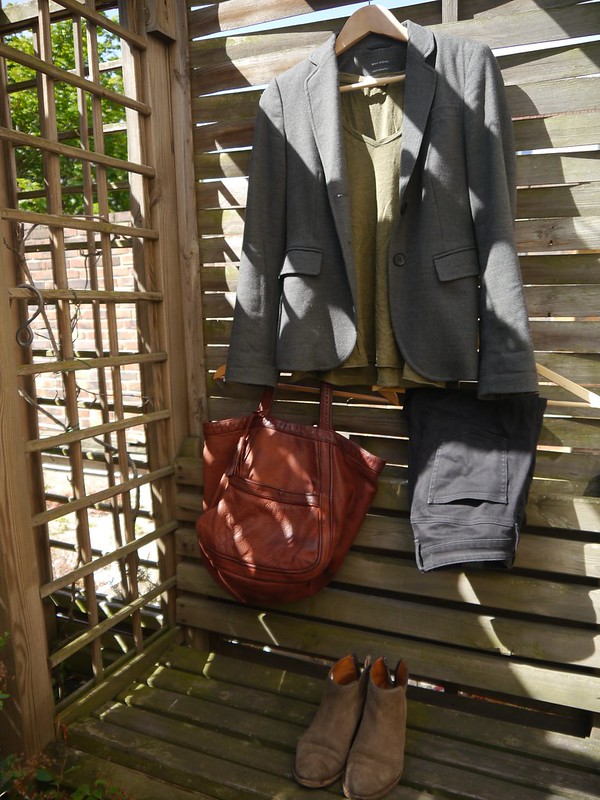
This outfit (above) could be something I wear for a global presentation in front of dozens of people. I work in international communications for a video game company, so 90 per cent of my time is spent in front of a computer or at internal meetings with the other international teams. However, as the European representative of our communication strategies, I sometimes have to present our plans to all the local teams, which can amount to over fifty persons hanging to my every word.
In that situation, I usually dress up a bit, not because that’s what is asked of us (many of my colleagues do these presentations wearing sweaters and Converse – video game company, remember), but because it makes me feel more professional, confident and reliable. In this example, I wear low-heeled boots instead of my usual flats, a bigger bag to host my laptop and notes, and a blazer jacket, more elegant than my usual leather ones. I’d also probably paint my nails in a dark neutral colour and wear a bit of perfume.
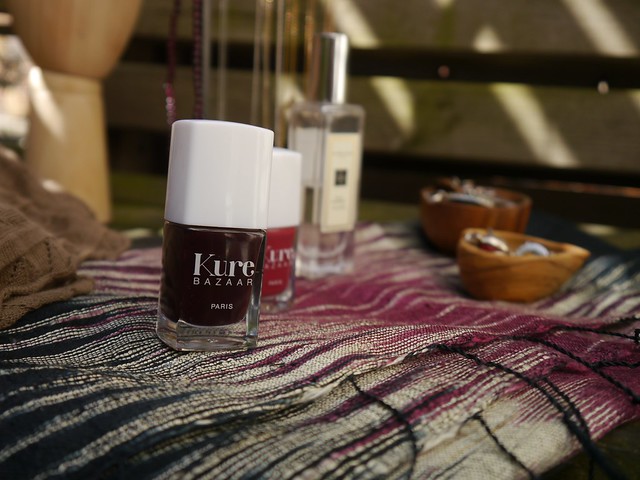
Which brings me to my second idea: you know this mantra that says, “dress for the job you want, not the one you have”, usually accompanied by a humorous drawing of an office full of super heroes and knights and astronauts. While I understand the actual meaning of that expression (dress like your boss rather than your job level, in order to modify the perception people have of you), I prefer to turn it in a different way: how do you want your outfit to make you feel?
When I choose this outfit, I want to feel sturdy and confident and at ease for a public speech. Knowing my personal style, and myself, I know that a blazer jacket, a polished manicure and a pair of dressed up shoes will help me feel that way. And it works. My theory is that, more than the details of the outfit themselves; it works because the outfit helps you feel a certain way, and, as a result, your demeanour and non-verbal gestures change.
In short, when you decide what outfit to wear for work, ask yourself: how do you want to feel? Not how other people think you should, but how you, deep inside, want to feel as a professional: serious? Sturdy? Confident? Fun? Kind? If you find, within your own style and the boundaries of the workplace’s dress code, an outfit that makes you feel that way, it will change your attitude, and therefore the perception the people have of you at work.
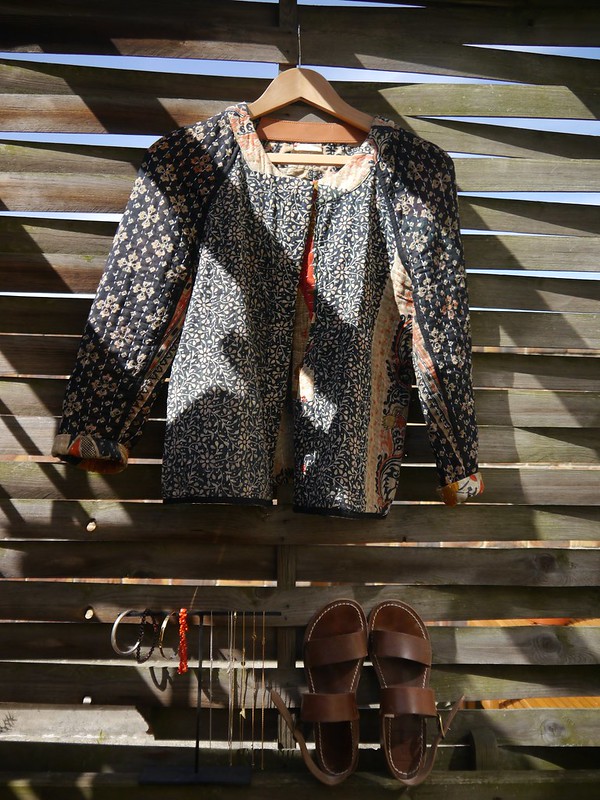
I’d like to write a word on this particular jacket (above), which illustrates how I integrate some of my personal style in a work appropriate outfit. As you can see, this jacket is tailored like a classical, chic jacket, one that would have its place in a work environment, but it was made of recycled ancient Indian fabric. Adding a touch of oriental or exotic details to my otherwise simple uniform is one of my own style signatures. To me, this jacket illustrates perfectly how I manage to blend these oriental details into work outfits appropriate to my company’s rules.
I would probably wear it with a simple pair of leather shoes as pictured, some fine golden jewellery and a very neutral outfit base (black and grey pants and top). Knowing your personal style, there are tons of ways to add a bit of your personality in your work uniform, even for the most conventional workplace. Granted, this particular jacket wouldn’t fit in everywhere, but this is only one of many examples, which I found iconic to my wardrobe collection.
3) Please fill in the blanks
My style in 5 words, or less: simple, natural/earthy, a bit oriental/Japanese, and a little tomboy perhaps.
Uniforms are a perfect structure to build your personal style around, especially when you have office rules to take into account.
Simple, high quality leather shoes always makes me feel more professional, because they combine comfort and elegance in a way that suits both my style and dresses up any otherwise simple or even casual outfit.
I always wear/carry a few accessories and jewellery items to feel "me", even though professionally, I am dressing for someone, or something: a printed scarf, my engagement ring made by my jewellery designer friend, a garnet bracelet brought back from Thailand, and one or two of my favourite pendants made of natural stone.
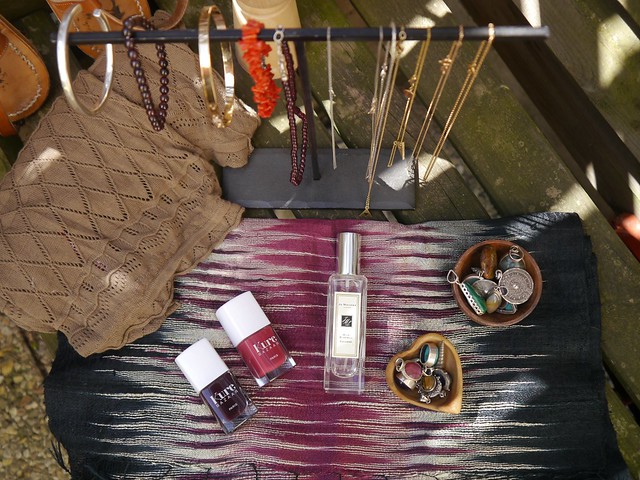
I would never wear high heels to work, because I can’t walk in them and it makes me feel awkward.
People often think just because I work in video games, I shouldn’t care how I look at work – most of the people in this industry wear gaming T-shirts and eat pizza at press events. But I think it is important that my outfit makes me feel like an accomplished professional.
I would tell my younger self that the most important is how you want to feel, the image you want to project, the kind of professional you want to be, both in terms of outfit and in terms of values and ethics. Do not try to conform to what others are expecting of you, because no matter how you look and how well you work, there will be people to disagree or criticise you – first because you are a woman, and it is a reality that women are judged by their looks more often than men, and second, because there are always jealous people who lack of self confidence and feel threatened by your professionalism, efforts and skills.
The idea of "dress for success" is a very useful one when applied internally – what kind of professional do you want to be, for yourself? In order to become that person, of course attitude, skills and overall work behaviour is important, but the outfits you pick and, more importantly, how they make you feel, matter a lot.
Photographs courtesy of Kali.
See all the other Women Who Work posts here.
In any case, Kali, of The Nife en l'Air has admirably filled the good writing gap on this blog. Notably, with this quote, which I think sort of sums up what I've been thinking about this whole workwear thing:
"In short, once you understand your office’s official and unspoken rules, find a way to adapt them to your own style, rather than imitate a uniform that isn’t you, which will ultimately have a negative impact on your behaviour, and external image."
Couldn't have said it better - like many things in life, style takes patience to hone. Mistakes happen. And more often than not, you'll come out the other side better dressed.
1) Share one, two or three pictures of some typical work outfits that you wear for various work-related occasions and 2) Describe the elements of the outfit in your own words
As a foreword, my personal style is overall pulled together and I am lucky to work in a rather relaxed environment, so I don’t own specific items just for work. I usually combine the most elegant pieces together on weekdays, whereas I mix them with more casual items on weekends.
There are some rules of course, as in any social situation, and it is all the more important to understand them in the work environment because this can have a real impact on how people perceive you professionally. However, these rules are not always the same from one industry to another, depending on the company, and even depending on the service you work for. Also, there are some official rules, and some implicit ones, which are the most difficult to figure out. For example in my company, which is creative, innovative and young, being too dressed up is actually somewhat of a faux-pas.

This first outfit (above) is an example of what I would wear on any weekday during the transitional season. Simple black khakis with a pair of oxfords, a shirt to dress it up, a simple and practical bag, and a neutral scarf on windy days. This could also be a weekend outfit, as is or by swapping the shoes with Converse for example.
Speaking of shoes, one of the first lessons I learned at work is to find what suits me best, rather than following some arbitrary list of what women should wear at work. As I wrote above, there are some rules to the work environment, but there are many ways to combine outfits that respect these rules, while remaining true to your own style and identity.
When I started working as an intern in an open space, in my early 20s, I was a bit impressed by all this. It was my first taste of an adult work environment, the social class was higher than mine, I was one of the youngest around, and I wanted to be taken seriously. As a result, I dressed the way I imagined a professional woman was supposed to: tailored pants or skirts, proper cotton shirts and high heels. Only that wasn’t me. Now that I remember this period, I probably looked awkward in poorly tailored shirts and uncomfortable high heels I couldn’t walk in. Even though I wanted to be taken seriously, the result was probably the opposite: I appeared as a newbie who didn’t quite know how to approach the work environment. Which is fine when you are an intern in your early 20s, not so much when you evolve and aspire to get more responsibilities.

With time, as I grew in confidence and refocused on my personal style, I found that a pair low boots or flats - oxfords, ballerinas or loafers – could be as elegant as a pair of high heels. I also found that I would feel much more at ease, therefore confident, in that type of shoes. As a result, my whole attitude was more poised and I was taken more seriously.
In short, once you understand your office’s official and unspoken rules, find a way to adapt them to your own style, rather than imitate a uniform that isn’t you, which will ultimately have a negative impact on your behaviour, and external image.

This outfit (above) could be something I wear for a global presentation in front of dozens of people. I work in international communications for a video game company, so 90 per cent of my time is spent in front of a computer or at internal meetings with the other international teams. However, as the European representative of our communication strategies, I sometimes have to present our plans to all the local teams, which can amount to over fifty persons hanging to my every word.
In that situation, I usually dress up a bit, not because that’s what is asked of us (many of my colleagues do these presentations wearing sweaters and Converse – video game company, remember), but because it makes me feel more professional, confident and reliable. In this example, I wear low-heeled boots instead of my usual flats, a bigger bag to host my laptop and notes, and a blazer jacket, more elegant than my usual leather ones. I’d also probably paint my nails in a dark neutral colour and wear a bit of perfume.

Which brings me to my second idea: you know this mantra that says, “dress for the job you want, not the one you have”, usually accompanied by a humorous drawing of an office full of super heroes and knights and astronauts. While I understand the actual meaning of that expression (dress like your boss rather than your job level, in order to modify the perception people have of you), I prefer to turn it in a different way: how do you want your outfit to make you feel?
When I choose this outfit, I want to feel sturdy and confident and at ease for a public speech. Knowing my personal style, and myself, I know that a blazer jacket, a polished manicure and a pair of dressed up shoes will help me feel that way. And it works. My theory is that, more than the details of the outfit themselves; it works because the outfit helps you feel a certain way, and, as a result, your demeanour and non-verbal gestures change.
In short, when you decide what outfit to wear for work, ask yourself: how do you want to feel? Not how other people think you should, but how you, deep inside, want to feel as a professional: serious? Sturdy? Confident? Fun? Kind? If you find, within your own style and the boundaries of the workplace’s dress code, an outfit that makes you feel that way, it will change your attitude, and therefore the perception the people have of you at work.

I’d like to write a word on this particular jacket (above), which illustrates how I integrate some of my personal style in a work appropriate outfit. As you can see, this jacket is tailored like a classical, chic jacket, one that would have its place in a work environment, but it was made of recycled ancient Indian fabric. Adding a touch of oriental or exotic details to my otherwise simple uniform is one of my own style signatures. To me, this jacket illustrates perfectly how I manage to blend these oriental details into work outfits appropriate to my company’s rules.
I would probably wear it with a simple pair of leather shoes as pictured, some fine golden jewellery and a very neutral outfit base (black and grey pants and top). Knowing your personal style, there are tons of ways to add a bit of your personality in your work uniform, even for the most conventional workplace. Granted, this particular jacket wouldn’t fit in everywhere, but this is only one of many examples, which I found iconic to my wardrobe collection.
3) Please fill in the blanks
My style in 5 words, or less: simple, natural/earthy, a bit oriental/Japanese, and a little tomboy perhaps.
Uniforms are a perfect structure to build your personal style around, especially when you have office rules to take into account.
Simple, high quality leather shoes always makes me feel more professional, because they combine comfort and elegance in a way that suits both my style and dresses up any otherwise simple or even casual outfit.
I always wear/carry a few accessories and jewellery items to feel "me", even though professionally, I am dressing for someone, or something: a printed scarf, my engagement ring made by my jewellery designer friend, a garnet bracelet brought back from Thailand, and one or two of my favourite pendants made of natural stone.

I would never wear high heels to work, because I can’t walk in them and it makes me feel awkward.
People often think just because I work in video games, I shouldn’t care how I look at work – most of the people in this industry wear gaming T-shirts and eat pizza at press events. But I think it is important that my outfit makes me feel like an accomplished professional.
I would tell my younger self that the most important is how you want to feel, the image you want to project, the kind of professional you want to be, both in terms of outfit and in terms of values and ethics. Do not try to conform to what others are expecting of you, because no matter how you look and how well you work, there will be people to disagree or criticise you – first because you are a woman, and it is a reality that women are judged by their looks more often than men, and second, because there are always jealous people who lack of self confidence and feel threatened by your professionalism, efforts and skills.
The idea of "dress for success" is a very useful one when applied internally – what kind of professional do you want to be, for yourself? In order to become that person, of course attitude, skills and overall work behaviour is important, but the outfits you pick and, more importantly, how they make you feel, matter a lot.
Photographs courtesy of Kali.
See all the other Women Who Work posts here.

Comments
And well said. Beautiful interview.
- Archana.
I eventually decided to keep my personal style, not too casual but with a personal twist. It might end up with : black top - black pants - shocking pink flats ;-)
To Archana: Since I work in the business branch, I'm more surrounded with communication and marketing professionals, so we are dressed in quite the same way - casual but still put together and a bit elegant, especially women. However when I visit studios without external guests (only internal meetings), I tend to bring more casual options in my suitcase just in case...
To Céline: It's interesting, I remember one of my teachers at Rikkyo, she used to dress mostly in black, but she always had cat accessories for the hair, or as a pendant... I guess it was her way of being herself while dressing very formally. It seems your tactic is quite similar :)